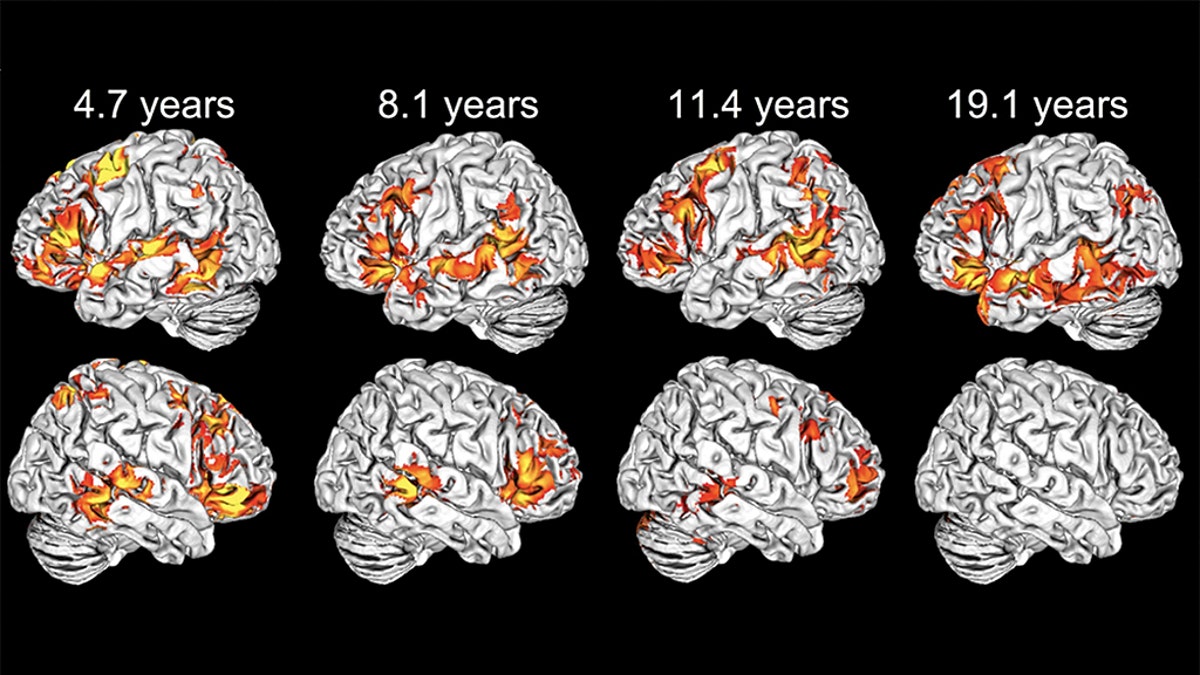Fox News Flash top headlines for September 8
Fox News Flash top headlines are here. Check out what's clicking on Foxnews.com.
New findings suggest infants and young kids process language in both hemispheres of the brain, which could help compensate after a neural injury, researchers say.
In nearly all adults, sentence processing only takes place in the left hemisphere, according to neuroscientists from Georgetown University Medical Center. Previously, with traditional scanning, it was unclear whether “strong left dominance for language [was] present at birth or [appeared] gradually during development,” said Elissa Newport, Ph.D., Georgetown neurology professor, in a news release.
However, analyses using functional magnetic resonance imaging (fMRI) revealed that “brain networks that localize specific tasks to one or the other hemisphere start during childhood but are not complete until a child is about 10 or 11,” Newport explained.
CLICK HERE FOR MORE MEDICAL RESEARCH
“This is very good news for young children who experience a neural injury,” Newport said, per the release. “Use of both hemispheres provides a mechanism to compensate after a neural injury. For example, if the left hemisphere is damaged from a perinatal stroke — one that occurs right after birth — a child will learn language using the right hemisphere. A child born with cerebral palsy that damages only one hemisphere can develop needed cognitive abilities in the other hemisphere. Our study demonstrates how that is possible.”

Activation maps of various ages. As seen in the bottom row, right-hemisphere language activation gradually declines over time. (Photo courtesy of Elissa Newport)
Newport is the director of the Center for Brain Plasticity and Recovery, a joint enterprise of Georgetown University and MedStar National Rehabilitation Network.
She said “in very young children, damage to either hemisphere is unlikely to result in language deficits,” and added that the findings suggest “language is distributed to both hemispheres early in life.” Newport believes the gradual decline of language processing in the right hemisphere over time is a shift in "neural distribution of language functions," and not just "developmental changes in sentence comprehension strategies."
Newport’s team built on previous research from Dr. William Gaillard, and Madison Berl, Ph.D., of Children’s National Medical Center, that had enrolled 39 healthy children aged 4 to 13. The Georgetown researchers added 14 adults aged 18 to 29 and performed new analyses on both groups. They looked at fMRI patterns in each hemisphere of a participant, as opposed to group averages.
They found that while young kids "showed left-lateralized language activation," "a large proportion of the youngest children also showed significant activation in the corresponding right-hemisphere areas."
Newport expects a higher right hemisphere involvement if the study were to examine even younger children. According to the release, the researchers are now investigating language activation in teens and young adults who underwent "a major left hemisphere stroke" during birth.
The findings were reportedly published on Sept. 7 in PNAS.









































